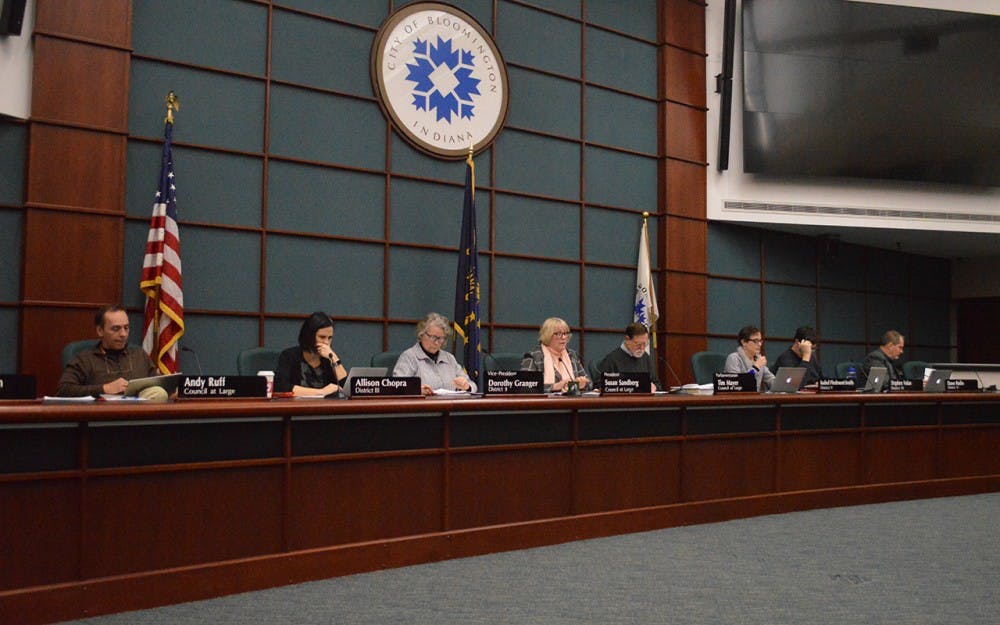A new city trash and recycling system was proposed to the Bloomington Common Council at its committee session Wednesday evening. The council unanimously recommended that they approve the proposal at a later session.
The new system, proposed by the Board of Public Works, would be an automatic pick-up system. This would require residents using city trash services to dispose of their trash in a new cart with a Radio Frequency Identification chip implanted in it.
Trash trucks would read the frequency of a chip and grab the trash cart to dump trash into the truck, as opposed to having the carts manually lifted by sanitation employees. The current sticker system, where residents purchase stickers to place on receptacles or bags for the sanitation department to pick up, would end.
All households will also receive a 96-gallon cart for recycling. Items being recycled would go through a single stream, which means residents would no longer have to separate recycling by material.
Both trash and recycling would be picked up weekly.
The system was presented to the council by Adam Wason, director of the Board of Public Works. If implemented, trash carts would be available in 35, 64 and 96 gallons.
The chips in these carts would collect data, such as how frequently a cart is placed out and trash is picked up. The data collected will be used by the city to see how frequently residents are using the trash system and possibly to change the cost to each household for the service.
The report on the proposal gives a range of monthly costs for each size. Monthly costs for 35-gallon carts could range between $4.82 and $6.51. Costs for 64-gallon carts could be between $8.60 and $11.61. The 96-gallon carts will cost $13.72 to $18.52 a month. These fees would be payable to the city sanitation department. Stickers used now for trash pickup cost $2.
The data collected would help the city decide how to implement a pay-as-you-throw plan in the future, as opposed to the flat rates.
According to the proposal, if this program would run at maximum costs, it may run at a deficit. Wason said profit is not the point of implementing this system.
"We don't want to raise more revenues with this,” he said. “We want to make a more efficient service that is affordable to the city.”
Council member Steve Volan, who sat on the Sanitation Modernization advisory committee that overlooked the proposal, said that while he was skeptical of it at first, he was persuaded during the committee meetings that this will be a good idea.
If passed, it would not be implemented until as early as late fall. The sanitation department needs first to purchase new trucks, which would take up to six months.
Public comment at the session was mostly concerned with how this would affect residents who may be a part of the city should the annexation of seven areas into the limits of the city of Bloomington be approved. Annexation would not take effect until 2020, which council members and Wason said would give the city time to figure out how exactly the proposed trash system would work.
Concerns about how to make the price more fair to residents who may be spending less on the sticker system than they would on the proposed system was also frequently brought up. Council members stressed that the data collected by the RFID chips would help make those prices more fair in the future.
The council also recommended that they pass ordinances allowing the city to receive funds from the Monroe County Community Foundation in order to help fund housing projects and approved salary changes for certain city positions.
The council will not have a meeting next week for spring break.




